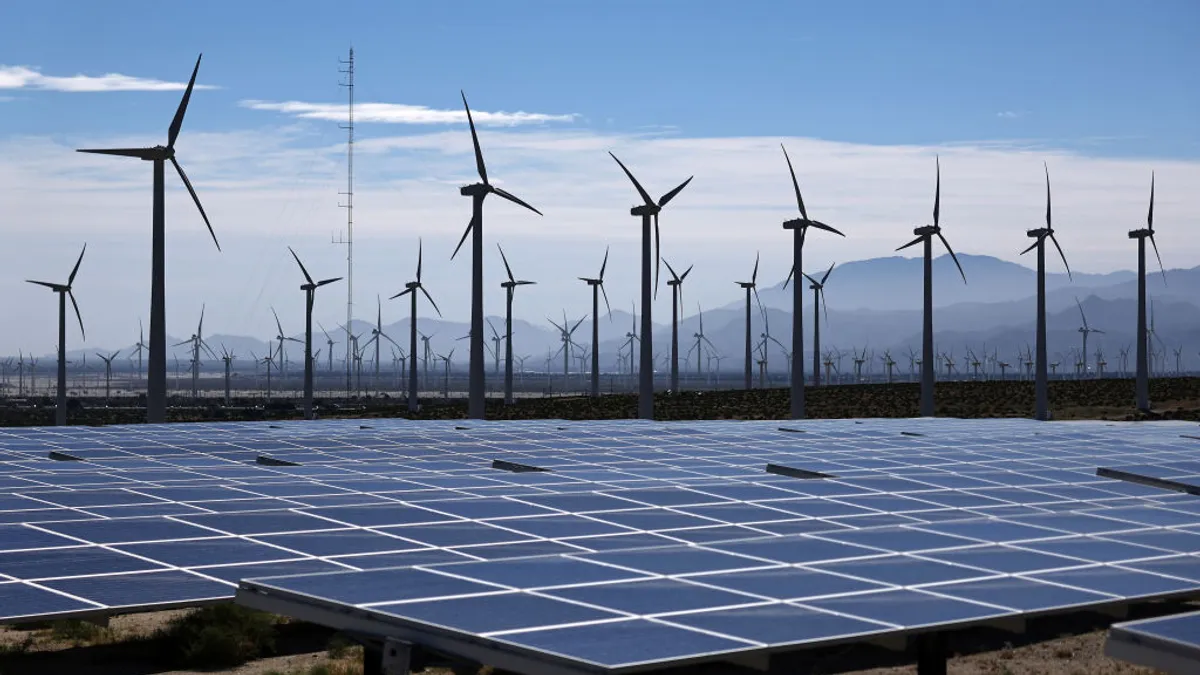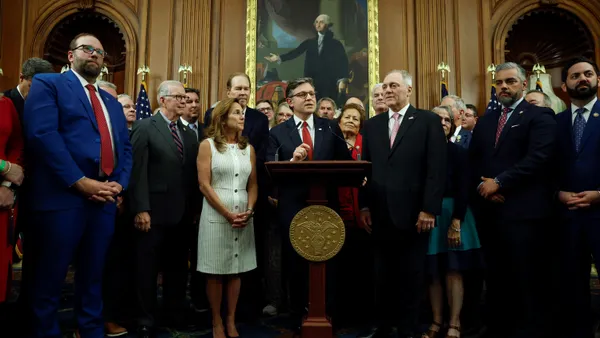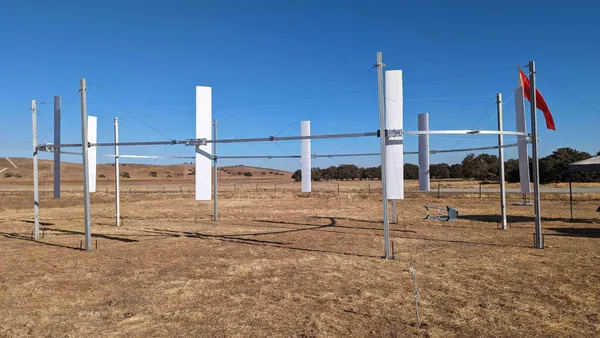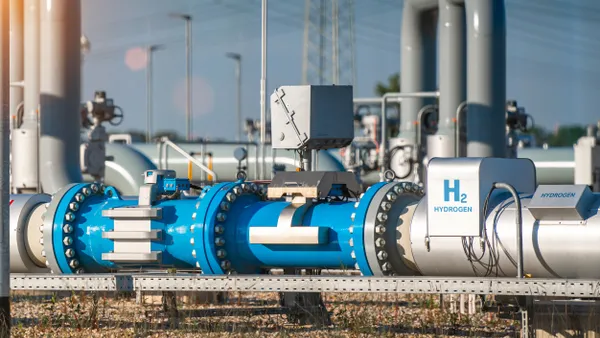Dive Brief:
- The U.S. Bureau of Ocean Energy Management said an application to develop an 800 MW floating offshore wind project met necessary standards for a commercial lease off the Pacific Coast, Renewable Energy World reports.
- The project, developed by Trident Wind LLC, would consist of 100 floating turbines with nameplate capacities ranging between 7 MW and 8 MW, and could later be extended to 1,000 MW, the agency said in a press release.
- The agency is determining if other companies are interested in the proposed lease area and if so, will initiate a competitive bidding process for the site. If no other companies step forward, BOEM will proceed with a noncompetitive bidding process.
Dive Insight:
The unsolicited proposal signals a growing interest in developing wind energy in the United States' coastal waters, the news outlet notes. Previously high upfront costs and the expiration of the wind production tax stymied growth, but the recent decision to extend the wind production tax an additional five years has apparently revived interest in the resource.
BOEM is now evaluating wind energy areas off New Jersey and North Carolina with almost 9,000 MW more of potential capacity, while beginning to look at other coastal regions. To date, BOEM has awarded 11 commercial wind energy leases off the Atlantic Coast.
A recent study from the University of Delaware concluded that a committment develop 2,000 MW of offshore wind projects off the Massachusetts over the next decade, along with advances in technology, could cut the projected cost of the clean resource 55% over 13 years.
Meanwhile, Deepwater Wind's 30 MW, five-turbine Block Island Wind Farm off Rhode Island's coast will be the first operating U.S. offshore wind project when goes online this year. The project's 20-year power purchase agreement (PPA) calls for output to go to National Grid, one of New England’s biggest electricity suppliers, at $0.244/kWh.
The proposed 468 MW Cape Wind project that was planned for Nantucket Sound, had a PPA with National Grid for 50% of the project’s output and a PPA with Eversource Energy for 27.5% of its electricity. Both were set at $0.187/kWh for the project’s first year output, with annual escalators. Both were ruled by state regulators to be beneficial for Massachusetts ratepayers, but the project is overcoming court hurdles, with A D.C. appeals court case, a case before the Massachusetts Supreme Judicial Court, and a third in a federal district court remaining.













